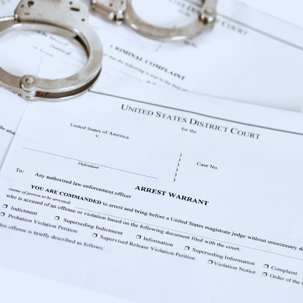Defendants pleading guilty to criminal charges is a common occurrence; it happens in more than 90 percent of cases where the state or the federal court formally files criminal charges. Defendants turning them in at the police station before the trial even begins is less common. These are two different processes, and both of them can end without the defendant ever spending a night in jail. Defendants must only turn themselves in when an active warrant is out for their arrest. Turning yourself in does not mean that you are confessing to a crime or entering a guilty plea; it only means that you are not obstructing justice.
A Texas criminal defense lawyer can help you get acquitted if the state has issued a warrant for your arrest and may even be able to get your charges dismissed without you having to go to trial.
Taking Charge of Your Criminal Case
Getting arrested on suspicion of a crime is unnerving under any circumstances. However, when you think about it, walking into a police station with a plan about how to fight your charges is a lot less scary than getting handcuffed at a traffic stop after the police pulled you over because your car's tail light is broken or when the police show up to your house after following you for weeks. When you choose to engage with your criminal case face to face, you have a better chance of a favorable outcome, whether that means an acquittal, a plea deal, or even making your criminal case disappear. Trying to run away from your criminal case only makes you look guilty, and it could even lead to you facing additional charges.
Find Out as Much as You Can About Your Warrant as You Can Before You Turn Yourself In
The best thing about turning yourself in is that you have time to find out about your charges before you sit at the police station, psyching yourself up to exercise your right to remain silent while the police question you. In Texas, you can find out the content of your arrest warrant by contacting the police department or sheriff's office in the jurisdiction that issued the warrant, which is the county where the alleged crime happened. Bail bond offices also sometimes have information about outstanding warrants.
Line Up a Bail Bond and a Defense Strategy
The most important thing to do before turning yourself in because of an arrest warrant is to contact a criminal defense lawyer. This way, you can start discussing your defense strategies before you even set foot in the police station. You should also ask the bail bond company if bail has been set, even though they are unlikely to know the bail amount. In other words, when you turn yourself in, think of it as a "walk-through." Walk into the police station, identify yourself, post bail, and then get to work with your lawyer building a defense strategy.
Contact the Law Office of Patrick J. McLain, PLLC About Criminal Defense Cases
A Dallas criminal defense lawyer can help you fight your criminal charges if the court has issued a warrant for your arrest. Contact the Law Office of Patrick J. McLain, PLLC, in Dallas, Texas, to discuss your case.

